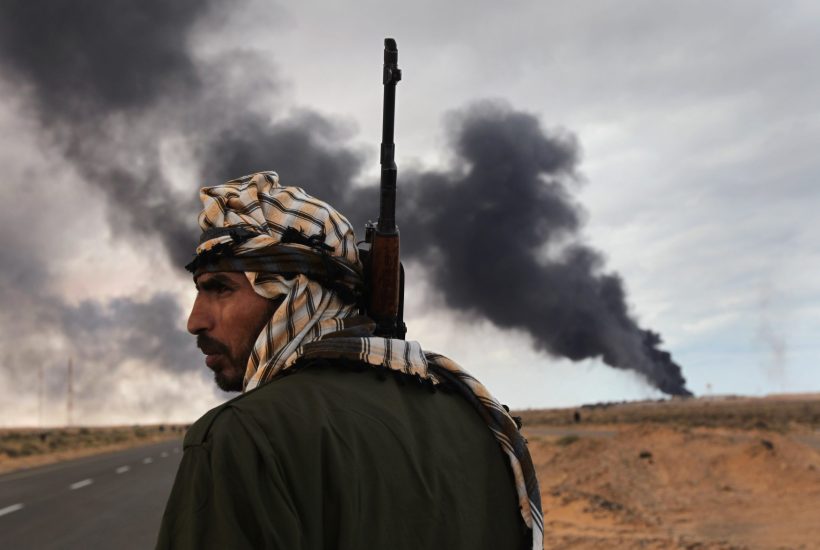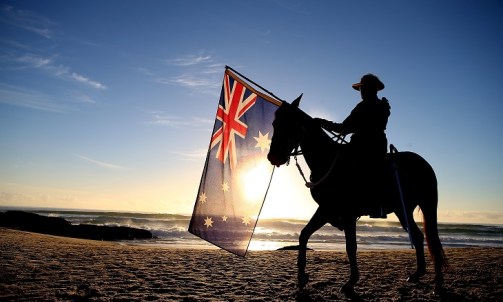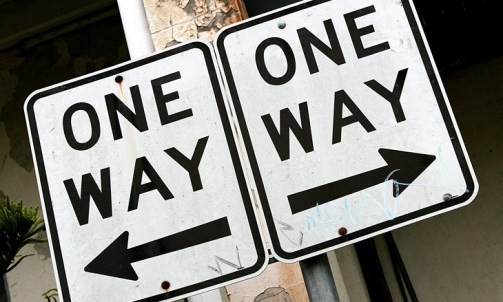They said we were going to uncouple from the Middle East. Barack Obama, they said, was going to pivot to Asia. Donald Trump was, finally, going to get the United States the hell out of there. Intellectually, politically and, most importantly of all, militarily, we were going to put this most vexatious of regions behind us. It was, they assured us, a new day.
They were wrong. Obama was drawn back in by his desire to strike a nuclear deal with Iran. Trump talked a good isolationist game but then droned Qasem Soleimani in Baghdad. Now we are in the midst of a coronavirus-induced oil crash. Now the Middle East squats in our living rooms once more. Now, it seems, the bad times are here again.
On Monday the price of oil hit $0. As coronavirus has destroyed the global economy it has destroyed the demand for oil along with it. And nowhere is the crash more devastating than in the Middle East.
The oil price to look at from a Middle East perspective is the Brent benchmark, which at the time of writing (and this could change quickly) stands at around $20 (£16.20). This is bad news for the region. But, as with everything in life, it’s worse for some than for others. The centre of the world’s oil is the Gulf, and Saudi Arabia is king of the oil producers there. It will be hit hard. But it has half a trillion dollars (£400 billion) of foreign exchange reserves. The second most powerful Gulf Cooperation Council (GCC) state, the UAE, has around a hundred billion dollars (£80 billion). With oil revenues dropping, the deficits of these states will balloon. But they can use their reserves to compensate and they are politically stable: they can impose austerity measures without fear of revolution.
More pertinent is the question of the workforce. All the GCC states rely on overwhelmingly foreign labour. Given the economic downturn, many of these people will most likely just leave. Everywhere we look Western diversified economies are stepping in to pay workers to keep things going. Their central banks are keeping national economies afloat. But the Gulf states won’t do that. The UAE and Qatar will bail out their national airlines if they need to but they won’t subsidize a Belgian banker or a Pakistani builder – and their economies will pay the price accordingly. Then there are the Arab workers who send remittances home. These will dry up. Their home countries’ economies will suffer, too.
In Iraq, the picture is bleaker. The country is desperately vulnerable right now. In order to maintain core operational spending, that is, to cover the basic stuff – the public payroll (about $50 billion or £40 billion per year), debt servicing, the omnipresent subsidies, welfare payments, government-subsided food imports and so on – Iraq needs an oil price of $42 (£34). It’s now over $20 (£16) less and Iraq anyway sells at a $5 to $6 discount (£4 to £4.90). The country is internally insolvent; it can’t even bring in enough to pay for public sector salaries. This is dangerous. Like many Middle East states, Baghdad works on the patronage model; it secures a degree of political stability through a bloated public sector. Simply put, jobs are doled out to the masses who might otherwise be a problem.
Now it will have to drain its foreign currency reserves to the tune of around $3 billion (£2.4 billion) per month. And this is without undertaking the vital work of rebuilding the areas formally under ISIS control. Grim times indeed for Baghdad. And it’s a similar story in the Maghreb, especially Algeria, which has a similar patronage model that is becoming untenable in the face of Covid-19 and the oil crash.
What makes this so bad for the non-GCC states in the Middle East and North Africa is that they pretty much all have potent anti-government movements. Right now, the Covid curfews keep them dormant. But these won’t last forever. These movements have the potential to explode – and circumstances are aligning in their favour. In Iraq and Algeria, it’s estimated that the informal economy – that collection of barbers, shopkeepers, day labourers and workers of every stripe who exist beyond the reaches of government, untaxed and uncounted – makes up roughly 67 per cent of the non-oil economy. They can expect no unemployment cheques or social security. They are facing a loss of income that is total. They are the ones who will form the masses of the next Arab Spring – or the ranks of the next ISIS.
And there is no end in immediate sight. This is not a two-month or even a six-month problem. If you are an oil-exporting state then your economic fortunes are tied to global demand – and this will continue to be depressed, even after we come out of lockdown. If you want an ominous sign for the future look to Sweden, which never instituted a formal lockdown but has nevertheless seen aggregate spending in the economy plummet.
And then, of course, there is Iran. Under US sanctions – in which oil is heavily targeted – it is now exporting just under 250,000 barrels per day, less than a tenth of its maximum capacity. But since sanctions resumed the Iranians have reconfigured their economy. Oil revenues now make up only about 20 per cent of the national budget. There has been forced austerity in Iran for a long time now. They have increased taxes and diversified. Still, the unrest across the country is likely to resume once the lockdown ends.
Everywhere you look things are bad, and likely to get much worse. We tried to draw away from the Middle East but it proved impossible. What is coming will be worse, and it will affect us all.
Got something to add? Join the discussion and comment below.
Get 10 issues for just $10
Subscribe to The Spectator Australia today for the next 10 magazine issues, plus full online access, for just $10.




















Comments
Don't miss out
Join the conversation with other Spectator Australia readers. Subscribe to leave a comment.
SUBSCRIBEAlready a subscriber? Log in